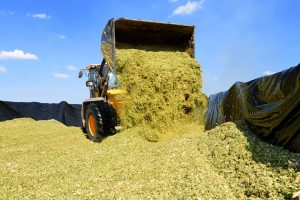ON THURSDAY, December 3, the Welsh Government and DEFRA launched a consultation seeking views on ending the export of live animals for slaughter and fattening where the journeys begin or transit through either country.
The NFU is instead calling for improvements to export regulations.
The union’s livestock board chairman for England, Richard Findlay, said: “The NFU has developed a solution to raise the standards for live exports for slaughter.
“We believe that an assurance scheme which goes beyond the current regulations would be best to ensure all animals travel in the best possible conditions and that they arrive at the approved and final destination in the best possible health.”
He added: “Significant regulatory changes could potentially have a massive impact on the UK food supply chain.”
Live animals commonly have to endure excessively long journeys during exports, causing distress and injury.
Leaving the EU has enabled the pursuit of the proposals, which would prevent unnecessary suffering of animals during transport and see Wales and England becoming the first countries in Europe to end the practice.
The consultation also covers proposals to further improve animal welfare in transport more generally, such as:
- reduced maximum journey times;
- animals will be given more space and headroom during transport
- stricter rules on transporting animals in extreme heat or cold
- tighter rules for transporting live animals by sea.
The consultation follows an earlier call for evidence by the UK Government and Devolved Administrations in April 2018, on controlling live exports for slaughter and improving animal welfare during transport.
The Minister for Environment, Energy and Rural Affairs, Lesley Griffiths, said: “We are committed to ensuring the highest standards of welfare for all animals kept in Wales.
“I believe a GB approach to be the best way forward in the future, to ensure we safeguard and improve the welfare of animals that are presently subject to long journeys.
“We will, in Wales, consider the findings from this consultation to shape our future policy direction on this devolved matter.
“I urge the agriculture industry, partners and everyone with an interest in animal welfare to get involved and share their views with us on this important issue.”
DEFRA Secretary George Eustice said: “We are committed to improving the welfare of animals at all stages of life. Today marks a major step forward in delivering on our manifesto commitment to end live exports for slaughter.
“Now that we have left the EU, we have an opportunity to end this unnecessary practice. We want to ensure that animals are spared stress prior to slaughter.”
Around 6,400 animals were transported from the UK directly to slaughter in continental Europe in 2018, based on internal figures.
This consultation takes into account the responses to the 2018 Call for Evidence, as well as the report published by the then Farm Animal Welfare Committee (now known as the Animal Welfare Committee), which is made up of farming and veterinary experts, into the existing welfare standards for animals during transport.
Chris Sherwood, CEO for the RSPCA said: “We welcome plans to end live exports and look forward to seeing this happen as the RSPCA has campaigned on this issue for more than 50 years.
“There is absolutely no reasonable justification to subject an animal to an unnecessarily stressful journey abroad simply for them to be fattened for slaughter.
“Ending live exports for slaughter and further fattening would be a landmark achievement for animal welfare.”
Peter Stevenson, OBE and Compassion in World Farming’s Chief Policy Advisor said: “Compassion in World Farming is delighted that Defra plans to ban live exports for slaughter and fattening. We have campaigned for over 50 years against the massive suffering caused by this inhumane, archaic trade, so this unambiguous proposal is very welcome.
“We urge farmers not to oppose the proposed ban but rather to recognise that this is an important part of moving forward to a high welfare future.”
The British Veterinary Association does not support a blanket ban on live exports. However, it does have concerns about the practice.
BVA President, James Russell said: “BVA has long believed that animals should be slaughtered as close as possible to where they have been reared and not be exported to countries with unknown standards or standards that are below those in the UK. We welcome this consultation looking at all aspects of animal welfare at transport.
“Live animal transport is a complex issue which includes varying factors of welfare and needs of different species. It is important to recognise that journey length and time are not the only things which can affect welfare, and that an evidence-based approach to improvements is essential.
“We regularly engage with Government on measures to safeguard animal welfare during transport, and recently gave evidence to the Farm Animal Welfare Committee (FAWC), on the issue. We will be liaising with our species-specific divisions, and members to form a response to this consultation.”


















Add Comment